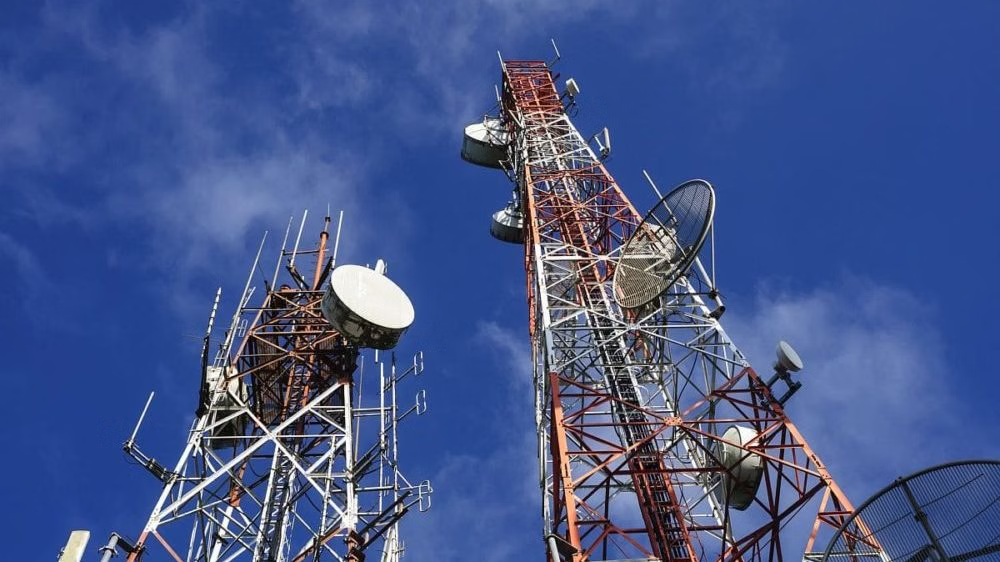Pakistan is currently facing a severe spectrum shortage, with only 274 MHz of spectrum available, according to the latest documents released by the Pakistan Telecommunication Authority (PTA). This shortage has placed the country at the bottom of regional rankings and poses a serious threat to digital growth, connectivity, and the timely launch of 5G services. To address this issue, the government is now preparing for a 5G spectrum auction that could transform the telecom sector and contribute significantly to the national economy.
Pakistan’s Spectrum Shortage in Comparison to Regional Countries
When compared to its regional peers, Pakistan lags far behind in spectrum allocation. Saudi Arabia leads with 1200 MHz of available spectrum, while countries such as Thailand and Bangladesh each have 600 MHz. In contrast, Pakistan’s 274 MHz allocation highlights the scale of the shortage and explains the network congestion and service quality issues that millions of mobile users face daily.
This limited availability of spectrum has been a roadblock to meeting the increasing demand for mobile broadband. With internet penetration rising rapidly, especially after the surge in digital adoption during the COVID-19 era, Pakistan’s telecom operators are struggling to keep pace with user needs.
Government Moves Toward 5G Spectrum Auction
To overcome the spectrum shortage, the government, through the Frequency Allocation Board and Auction Advisory Committee, is working toward a 5G spectrum auction. PTA initiated the process in 2023 and later hired an international consultant in November 2024 to assess the market, evaluate spectrum value, and recommend a practical auction design.
The auction is not just about upgrading networks; it is about solving long-standing challenges in the telecom sector. With proper allocation of new spectrum bands, operators will be able to expand coverage, reduce call drops, and improve the quality of 4G and 5G services.
Economic Benefits of Addressing Spectrum Shortage
The introduction of 5G spectrum is projected to bring massive economic benefits for Pakistan. According to PTA’s estimates, launching 5G and expanding mobile broadband capacity could increase GDP growth by 1.5 to 2.4%. Furthermore, employment opportunities are expected to grow between 3.1% and 13% due to the expansion of digital services, technology startups, and telecom infrastructure.
Research also indicates that every 10% increase in mobile broadband penetration leads to significant gains in national productivity and economic growth. In Pakistan’s case, this translates into improved efficiency for businesses, better opportunities for freelancers, and enhanced digital services for consumers.
Impact on Foreign Investment and Exports
The spectrum shortage has also been a barrier to attracting foreign direct investment (FDI) in the telecom sector. With limited spectrum, operators have been unable to expand services at the pace international investors expect. PTA documents suggest that once new spectrum is auctioned, Pakistan could see up to a 2% boost in FDI inflows. Additionally, exports of digital and IT services could rise by 1.9%, further strengthening the country’s economic stability.
Pakistan’s Position in Global 5G Race
Currently, more than 101 countries worldwide have launched 5G services. Pakistan’s delay in auctioning spectrum has placed it behind not just global leaders but also its regional competitors. Among 16 regional countries, Pakistan is ranked at the bottom in terms of spectrum allocation. However, PTA estimates that after the spectrum auction, the country’s ranking will improve to sixth place, bringing it closer to regional peers and creating an opportunity to catch up in the digital race.
Why Spectrum Auction is Urgent for Pakistan
The growing adoption of smartphones, rising demand for data-intensive apps, and expansion of digital services mean that the spectrum shortage must be resolved urgently. Without additional spectrum, mobile operators cannot deliver on consumer expectations, and Pakistan risks widening the digital divide.
The upcoming auction is, therefore, not only about enabling 5G but also about ensuring sustainable growth of the digital economy. From remote education and e-health services to smart cities and e-commerce, all sectors depend on robust telecom infrastructure. Spectrum allocation will directly determine how well Pakistan can compete in a globalized digital market.
Pakistan’s spectrum shortage is one of the biggest challenges facing its telecom sector today. With only 274 MHz currently available compared to much higher allocations in neighboring countries, the gap is clear and concerning. The upcoming 5G spectrum auction offers a chance to close this gap, improve service quality, and unlock economic growth. If managed effectively, it could contribute up to 2.4% to GDP, increase employment by as much as 13%, and attract greater foreign investment.
Resolving the shortage is not just a technical necessity—it is an economic imperative for Pakistan’s digital future. The success of the spectrum auction will define how quickly Pakistan can transition into a truly connected, competitive, and prosperous digital economy.



